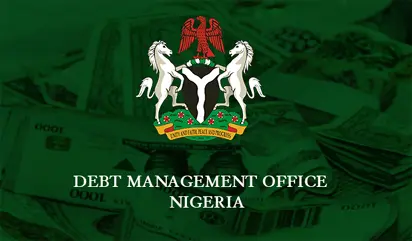Nigeria spent a total of $2. 24 billion on external debt servicing in the first six months this year, latest data released by the Debt Management Office (DMO) has shown.
The amount is $1.07 billion or 91.55 per cent higher than the $1.17 billion that the country spent on servicing its external debt in the corresponding period of last year.
According to the actual external debt service payments data for April – June 2024, published by the DMO over the weekend, out of the sum of $1. 12 billion that Nigeria spent on servicing external debt in the second quarter of this year, $672.01 million went into servicing debt owed Multilateral Financial Institutions (MFIs), such as the International Development Association (IDA);
the International Bank for Reconstruction and Development; the African Development Bank (AfDB), the International Fund for Agricultural Development (IFAD); the African Development Fund (ADF); the Africa Growing Together Fund (AGTF); the European Development Fund (EDF)and the Islamic Development Bank (IDB).
The balance of the amount comprised the $139.47 million and $308.91 million used in servicing bilateral and commercial debts respectively.
New Telegraph’s analysis of the DMO’s actual external debt service payments data for January – March, 2024, also indicates that the total sum of $1. 12 billion spent on servicing external debt in the first quarter of this year, was made up of $634.40 million for multilateral debts, $197.43 million for bilateral debts and $288.18 million for commercial debts.
Further analysis of the DMO’s data shows that while there was a significant increase in the total amount that the country spent on servicing external debt in the first half of this year compared with the corresponding period of 2023, the amount for actual external debt service payments in Q1’24 was virtually unchanged from the previous quarter.
In fact, according to the DMO, the country’s total external debt was relatively flat at $42.90 billion at the end of June 30, 2024 compared with $42.12 billion at the end of the first quarter.
New Telegraph reports that financial experts had predicted that the devaluation of the naira, occasioned by the forex reforms introduced by the Central Bank of Nigeria (CBN) in June last year, would lead to an increase in the country’s public debt as well as the cost of servicing it.
Indeed, the latest DMO data, Nigeria’s total public debt stock-comprising external and domestic debt of the FGN, States and FCT as at June 30, 2024, in naira terms, rose by 10.35 per cent to hit N134.30 trillion from N121.67 trillion as at March 31.















